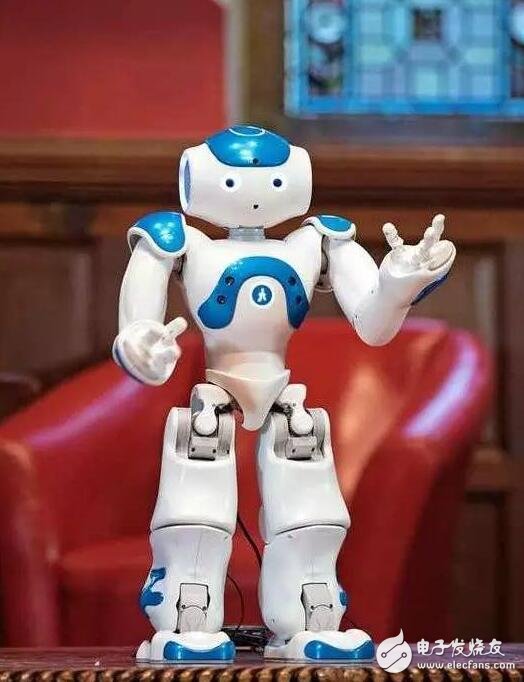Last year, AlphaGo relied on artificial intelligence to challenge the most difficult human game Go, and the “deep learning†behind artificial intelligence was well known. It also pushed Google’s acquired AI technology company DeepMind to the spotlight.
Deep learning requires two things: massive measurement processing power and massive amount of learnable data (big data). DeepMind selected 30 million moves from the site of amateur and expert chess players to train AlphaGo. They made a slight change to AlphaGo, created one of its avatars, and let the two fight each other to generate more training data more quickly. According to DeepMind's CEO and co-founder Hassabis's plan, the company's goal is to invent new AI algorithms similar to how human brains work, which is why the company employs a large number of neuroscientists. Hassabis said that seeking inspiration from the human brain makes DeepMind much different from other machine learning research teams. Although DeepMind's method does not completely rule out brute force calculations, AlphaGo's self-learning method is much closer to humans' approach to Go than to "dark blue" and human proximity to chess.

When you mention "dark blue", you can immediately think of the example of this IBM supercomputer defeating chess champion Kasparov twenty years ago. At that time, the machine won the first man-machine battle. And Waston is the back of the dark blue. Watson shines in 2011 because it won the special edition of the American TV quiz show "Jeopardy!". In the face of the confusing problem in the program with punctual English, Watson can analyze and find clues in the huge natural language database, synthesize these clues and answer them in a voice, thus defeating the American quiz show. The most intelligent human brain. The human player Jennis, who was defeated by Watson, said at the time: "I, on behalf of myself, welcomes our new computer overlord."
Unlike DeepMind's attempt to learn how human brains create new algorithms, Watson relies on what IBM calls "cognitive computing," the core of which is that software can self-modify and learn. Watson will compare the problem with a database of potential answers and generate a long list of possible answers. It then scores these answers using a number of other databases such as encyclopedias, medical documents, audio or pictures. The fact-checking algorithm adjusts the process based on the credibility of the data source, and then one (or often several) of the most likely correct answers are selected. The final step is to evaluate and fine tune these results by human experts, refining them in an iterative process (and thus teaching the software what to do) until the system is trained to be good enough to be released to the outside world. To achieve this goal, IBM employs a group of linguists, psychologists, sociologists, and programmers. The combination of man and machine is Watson's important selling point.
Regardless of the way to design and improve the algorithm, the artificial intelligence research represented by Watson and DeepMind requires a large amount of data to help the algorithm learn, and bring artificial intelligence to the market as soon as possible, which helps them learn in practice and learn again. use.
IBM is pushing the Watson commercial application earlier. In 2014, IBM opened Watson to general commercial use, allowing companies to create and sell their own Watson-based applications. To this end, IBM has also set up a $100 million fund to support startups that use Watson's technology behind them. More than a year ago, IBM released a new set of tools to help outsiders develop Watson's business applications.
Today, Watson has mature applications in the medical and legal fields, and the latest application is in the field of financial regulatory compliance. IBM is aware of the huge annual spending on regulation and compliance (it is estimated to be more than $270 billion, and it will cost 20 billion to understand regulatory requirements), and it began to develop this business function at Watson in early 2015. A large number of possible violations are entered into Watson, which analyzes trading patterns and various communication content (from public information to social media), which can be extended to the counterparty's network to clarify complex relationships. . At the same time, IBM hopes that its financial consulting firm Promontory is familiar with financial sector regulation and change experts to help Watson learn.
In contrast, DeepMind has just opened applications in various fields. In July last year, Google announced that DeepMind has found ways to reduce the cooling capacity of Google’s data centers by two-fifths. Its algorithm first analyzes the data center's operational log to understand the task, and then optimizes the process by iteratively simulating the run. Similarly, DeepMind has also entered the medical industry. Last November, the company received its first paid job and signed a five-year contract with NHS Public Hospital Royal Free London to process 1.7 million medical records.
The competition for artificial intelligence has begun, and global IT giants such as Google, Facebook, Microsoft, Amazon, Baidu, and IBM have all joined in. Watson and DeepMind are just two examples. In this artificial intelligence competition, it is crucial to capture real-world big data. Even Google, which has a large amount of data to mine, uses AI and machine learning techniques to improve systems such as hospitals, power grids, and factories. It is also important to obtain specific operational data. The IBM Open Watson platform develops applications for various industries and is also actively acquiring opportunities to analyze various big data. The improvement and knowledge gained from the analysis of various types of big data by artificial intelligence algorithms may be the biggest target of this competition.
Cheek Retractor,Self Retaining Retractor,Abdominal Retractor,Malleable Retractor
Dragon Crown Medical Co., Ltd. , https://www.dragoncrownmed.com